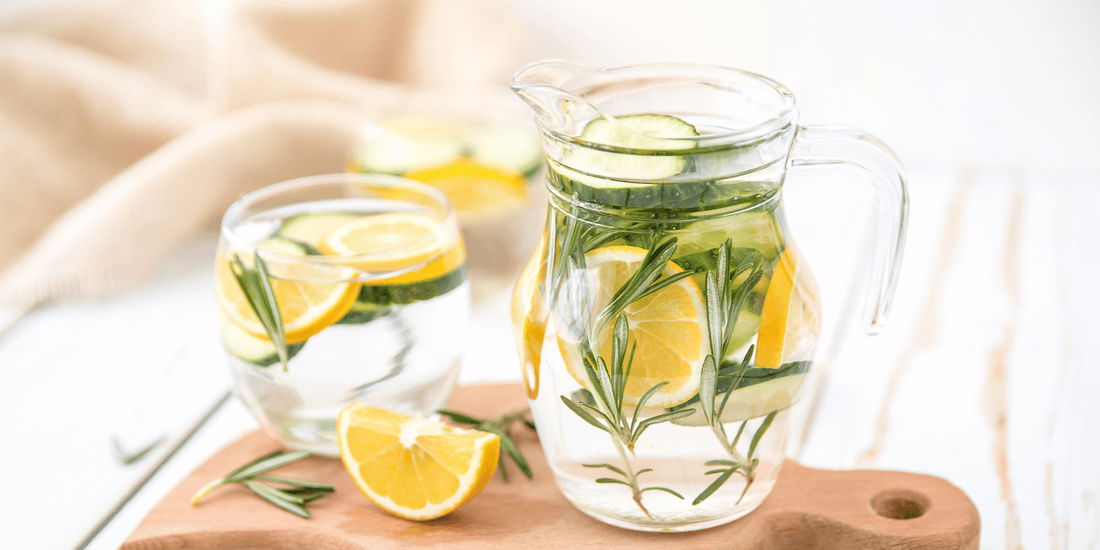
Do You Really Need a Detox?
Understanding what your body actually needs, and what “detox” can realistically mean for wellness
The Short Answer
Your body already detoxifies - daily, automatically, and pretty effectively. You don’t need to do anything extreme. But there are smart, gentle ways to support your body’s natural processes that can genuinely make you feel better.
This guide is here to help you separate evidence-based strategies from trends, and figure out what might work for you — without going on a juice cleanse.
What Does “Detox” Actually Mean?
Outside of a medical setting (like substance withdrawal), “detox” has become a catch-all for wanting to feel less bloated, clearer, lighter, or more energised. And while those are valid goals, the body already has built-in systems to manage what we commonly call “toxins.”
Your everyday detox systems:
- Liver: filters and processes substances for elimination
- Kidneys: filter blood and manage fluid waste
- Digestive tract: expels waste and excess hormones via bile and stool
- Skin and lungs: help release some water-soluble waste
- Lymphatic system: supports immune waste removal
Your body is doing a lot already — the goal is to support it, not override it.
What Doesn’t Really Help (According to Evidence)
Many popular detox methods don’t do what they claim, and some can actually cause more stress to the body.
Common approaches with little evidence:
- Juice cleanses: Often low in protein and fibre, and may cause blood sugar fluctuations
- Laxative teas: May temporarily relieve bloating, but can lead to dependency or dehydration
- Colon cleanses: Unnecessary for most people and potentially disruptive to gut bacteria
- Activated charcoal (daily use): Helpful in emergencies, but can bind to nutrients and medications if used casually
That doesn’t mean these are always harmful — but they’re not essential or proven detox methods.
What You Can Detox From, and How to Support It
There are situations where your detox pathways might benefit from extra care:
Alcohol
Reducing alcohol intake supports liver function and antioxidant reserves. Even short breaks can help.
Environmental toxins
We’re exposed to small amounts of substances like air pollution, plastic compounds, and pesticide residues. A balanced diet and regular elimination help minimise their impact.
Processed food & metabolic stress
A “food reset” that prioritises whole foods over ultra-processed options can ease the body’s workload and support gut health.
What Actually Supports Your Body’s Detox Pathways
These are the daily, sustainable habits that actually help your natural systems work more efficiently:
1. Eat whole, colourful foods
- Cruciferous veg (broccoli, cauliflower, kale) support liver enzyme function
- Fibre (flaxseed, lentils, oats) helps carry waste out
- B vitamins and antioxidants (leafy greens, berries, eggs) fuel detox pathways
2. Stay hydrated
Water supports kidney function and helps flush out waste. Herbal teas count too.
3. Move regularly
Gentle movement (walking, stretching, yoga) supports lymphatic flow and circulation.
4. Prioritise rest
Sleep allows your brain to perform its own form of clean-up via the glymphatic system8.
5. Consider targeted support
If needed, and with professional guidance:
- Magnesium: supports regularity and cell function
- Milk thistle: may help support liver health
- NAC or glutathione: supports antioxidant and liver detox pathways
Yvidét Edit
You don’t need to “detox” in the traditional sense, your body already does that.
But if you’re feeling off, tired, or overloaded, supporting your detox systems with good sleep, fibre-rich food, water, and gentle movement is a smart place to start.
Think support, not restriction. Gentle shifts, not extreme plans.
Sources
Debunking common wellness myths - Harvard Health
Detoxes” and “Cleanses”: What You Need To Know | NCCIH
Activated charcoal | Poison Control
Alcohol-related liver disease - NHS
Lack of sleep in middle age may increase dementia risk | National Institute on Aging
